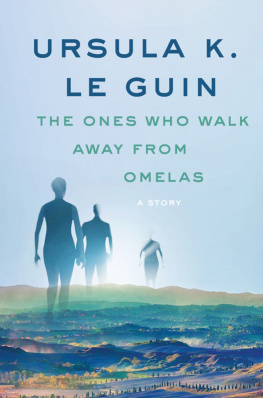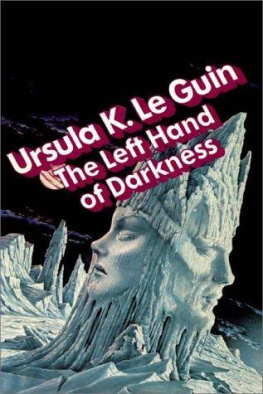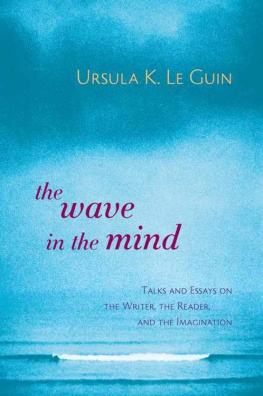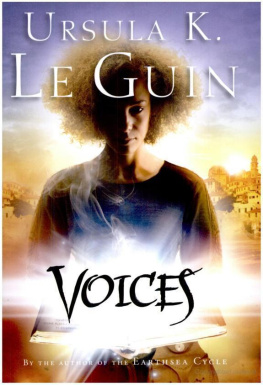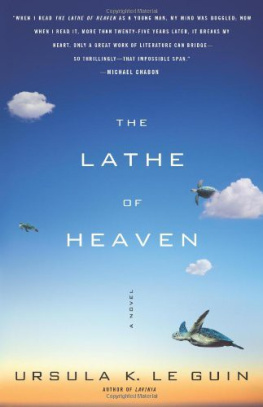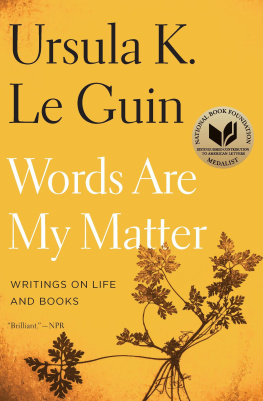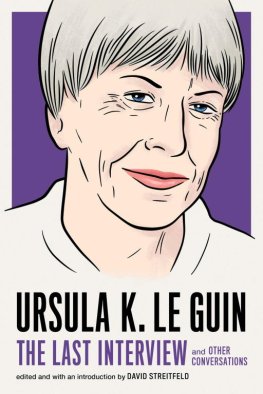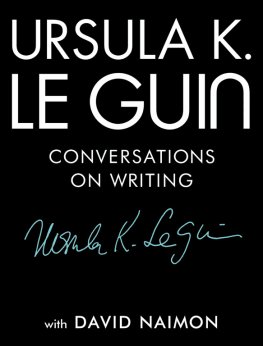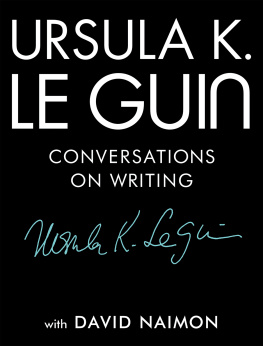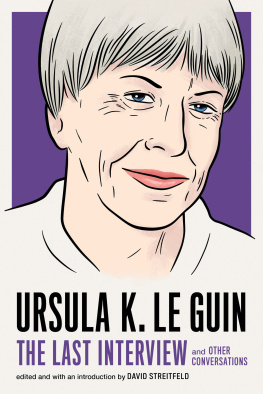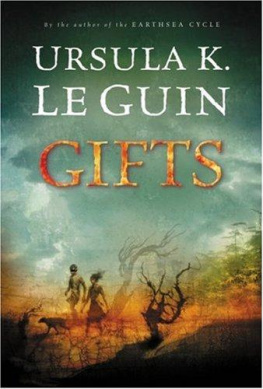Ursula K. Le Guin - The Ones Who Walk Away from Omelas: A Story
Here you can read online Ursula K. Le Guin - The Ones Who Walk Away from Omelas: A Story full text of the book (entire story) in english for free. Download pdf and epub, get meaning, cover and reviews about this ebook. year: 2017, publisher: Harper Perennial, genre: Art / Science fiction. Description of the work, (preface) as well as reviews are available. Best literature library LitArk.com created for fans of good reading and offers a wide selection of genres:
Romance novel
Science fiction
Adventure
Detective
Science
History
Home and family
Prose
Art
Politics
Computer
Non-fiction
Religion
Business
Children
Humor
Choose a favorite category and find really read worthwhile books. Enjoy immersion in the world of imagination, feel the emotions of the characters or learn something new for yourself, make an fascinating discovery.
- Book:The Ones Who Walk Away from Omelas: A Story
- Author:
- Publisher:Harper Perennial
- Genre:
- Year:2017
- Rating:3 / 5
- Favourites:Add to favourites
- Your mark:
- 60
- 1
- 2
- 3
- 4
- 5
The Ones Who Walk Away from Omelas: A Story: summary, description and annotation
We offer to read an annotation, description, summary or preface (depends on what the author of the book "The Ones Who Walk Away from Omelas: A Story" wrote himself). If you haven't found the necessary information about the book — write in the comments, we will try to find it.
The storyOmelaswas first published inNew Dimensions 3, a hard-cover science fiction anthology edited by Robert Silverberg, in October 1973, and the following year it won Le Guin the prestigious Hugo Award for best short story.
It was subsequently printed in her short story collectionThe Winds Twelve Quartersin 1975.
The Ones Who Walk Away from Omelas: A Story — read online for free the complete book (whole text) full work
Below is the text of the book, divided by pages. System saving the place of the last page read, allows you to conveniently read the book "The Ones Who Walk Away from Omelas: A Story" online for free, without having to search again every time where you left off. Put a bookmark, and you can go to the page where you finished reading at any time.
Font size:
Interval:
Bookmark:
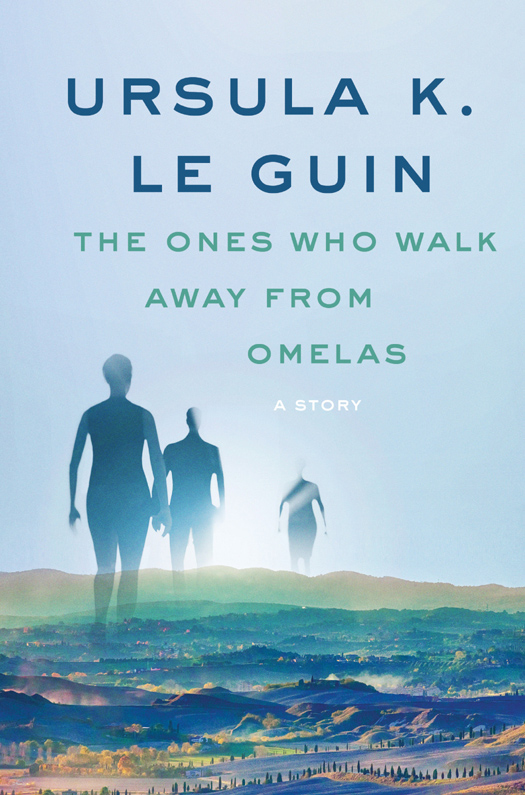

(Variations on a theme by William James)
The central idea of this psychomyth, the scapegoat, turns up in Dostoyevskys Brothers Karamazov, and several people have asked me, rather suspiciously, why I gave the credit to William James. The fact is, I havent been able to re-read Dostoyevsky, much as I loved him, since I was twenty-five, and Id simply forgotten he used the idea. But when I met it in Jamess The Moral Philosopher and the Moral Life, it was with a shock of recognition. Here is how James puts it:
Or if the hypothesis were offered us of a world in which Messrs. Fouriers and Bellamys and Morriss utopias should all be outdone, and millions kept permanently happy on the one simple condition that a certain lost soul on the far-off edge of things should lead a life of lonely torment, what except a specifical and independent sort of emotion can it be which would make us immediately feel, even though an impulse arose within us to clutch at the happiness so offered, how hideous a thing would be its enjoyment when deliberately accepted as the fruit of such a bargain?
The dilemma of the American conscience can hardly be better stated. Dostoyevsky was a great artist, and a radical one, but his early social radicalism reversed itself, leaving him a violent reactionary. Whereas the American James, who seems so mild, so navely gentlemanlylook how he says us, assuming all his readers areas decent as himself!was, and remained, and remains, a genuinely radical thinker. Directly after the lost soul passage he goes on.
All the higher, more penetrating ideals are revolutionary. They present themselves far less in the guise of effects of past experience than in that of probable causes of future experience, factors to which the environment and the lessons it has so far taught us must learn to bend.
The application of those two sentences to this story, and to science fiction, and to all thinking about the future, is quite direct. Ideals as the probable causes of future experiencethat is a subtle and an exhilarating remark!
Of course I didnt read James and sit down and say, Now Ill write a story about that lost soul. It seldom works that simply. I sat down and started a story, just because I felt like it, with nothing but the word Omelas in mind. It came from a road sign: Salem (Oregon) backwards. Dont you read road signs backwards? POTS. WOLS nerdlihc. Ocsicnarf Nas... Salem equals schelomo equals salaam equals Peace. Melas. O melas. Omelas. Homme hlas. Where do you get your ideas from, Ms Le Guin? From forgetting Dostoyevsky and reading road signs backwards, naturally. Where else?
With a clamor of bells that set the swallows soaring, the Festival of Summer came to the city Omelas, bright-towered by the sea. The rigging of the boats in harbor sparkled with flags. In the streets between houses with red roofs and painted walls, between old moss-grown gardens and under avenues of trees, past great parks and public buildings, processions moved. Some were decorous: old people in long stiff robes of mauve and grey, grave master workmen, quiet, merry women carrying their babies and chatting as they walked. In other streets the music beat faster, a shimmering of gong and tambourine, and the people went dancing, the procession was a dance. Children dodged in and out, their high calls rising like the swallows crossing flights over the music and the singing. All the processions wound towards the north side of the city, where on the great water-meadow called the Green Fields boys and girls, naked in the bright air, with mud-stained feet and ankles and long, lithe arms, exercised their restive horses before the race. The horses wore no gear at all but a halter without bit. Their manes were braided with streamers of silver, gold, and green. They flared their nostrils and pranced and boasted to one another; they were vastly excited, the horse being the only animal who has adopted our ceremonies as his own. Far off to the north and west the mountains stood up half encircling Omelas on her bay. The air of morning was so clear that the snow still crowning the Eighteen Peaks burned with white-gold fire across the miles of sunlit air, under the dark blue of the sky. There was just enough wind to make the banners that marked the racecourse snap and flutter now and then. In the silence of the broad green meadows one could hear the music winding through the city streets, farther and nearer and ever approaching, a cheerful faint sweetness of the air that from time to time trembled and gathered together and broke out into the great joyous clanging of the bells.
Joyous! How is one to tell about joy? How describe the citizens of Omelas?
They were not simple folk, you see, though they were happy. But we do not say the words of cheer much any more. All smiles have become archaic. Given a description such as this one tends to make certain assumptions. Given a description such as this one tends to look next for the King, mounted on a splendid stallion and surrounded by his noble knights, or perhaps in a golden litter borne by great-muscled slaves. But there was no king. They did not use swords, or keep slaves. They were not barbarians. I do not know the rules and laws of their society, but I suspect that they were singularly few. As they did without monarchy and slavery, so they also got on without the stock exchange, the advertisement, the secret police, and the bomb. Yet I repeat that these were not simple folk, not dulcet shepherds, noble savages, bland Utopians. They were not less complex than us. The trouble is that we have a bad habit, encouraged by pedants and sophisticates, of considering happiness as something rather stupid. Only pain is intellectual, only evil interesting. This is the treason of the artist: a refusal to admit the banality of evil and the terrible boredom of pain. If you cant lick em, join em. If it hurts, repeat it. But to praise despair is to condemn delight, to embrace violence is to lose hold of everything else. We have almost lost hold; we can no longer describe a happy man, nor make any celebration of joy. How can I tell you about the people of Omelas? They were not nave and happy childrenthough their children were, in fact, happy. They were mature, intelligent, passionate adults whose lives were not wretched. O miracle! but I wish I could describe it better. I wish I could convince you. Omelas sounds in my words like a city in a fairy tale, long ago and far away, once upon a time. Perhaps it would be best if you imagined it as your own fancy bids, assuming it will rise to the occasion, for certainly I cannot suit you all. For instance, how about technology? I think that there would be no cars or helicopters in and above the streets; this follows from the fact that the people of Omelas are happy people. Happiness is based on a just discrimination of what is necessary, what is neither necessary nor destructive, and what is destructive. In the middle category, howeverthat of the unnecessary but undestructive, that of comfort, luxury, exuberance, etc.they could perfectly well have central heating, subway trains, washing machines, and all kinds of marvelous devices not yet invented here, floating light-sources, fuelless power, a cure for the common cold. Or they could have none of that: it doesnt matter. As you like it. I incline to think that people from towns up and down the coast have been coming in to Omelas during the last days before the Festival on very fast little trains and double-decked trams, and that the train station of Omelas is actually the handsomest building in town, though plainer than the magnificent Farmers Market. But even granted trains, I fear that Omelas so far strikes some of you as goody-goody. Smiles, bells, parades, horses, bleh. If so, please add an orgy. If an orgy would help, dont hesitate. Let us not, however, have temples from which issue beautiful nude priests and priestesses already half in ecstasy and ready to copulate with any man or woman, lover or stranger, who desires union with the deep godhead of the blood, although that was my first idea. But really it would be better not to have any temples in Omelasat least, not manned temples. Religion yes, clergy no. Surely the beautiful nudes can just wander about, offering themselves like divine souffls to the hunger of the needy and the rapture of the flesh. Let them join the processions. Let tambourines be struck above the copulations, and the glory of desire be proclaimed upon the gongs, and (a not unimportant point) let the offspring of these delightful rituals be beloved and looked after by all. One thing I know there is none of in Omelas is guilt. But what else should there be? I thought at first there were no drugs, but that is puritanical. For those who like it, the faint insistent sweetness of
Font size:
Interval:
Bookmark:
Similar books «The Ones Who Walk Away from Omelas: A Story»
Look at similar books to The Ones Who Walk Away from Omelas: A Story. We have selected literature similar in name and meaning in the hope of providing readers with more options to find new, interesting, not yet read works.
Discussion, reviews of the book The Ones Who Walk Away from Omelas: A Story and just readers' own opinions. Leave your comments, write what you think about the work, its meaning or the main characters. Specify what exactly you liked and what you didn't like, and why you think so.

